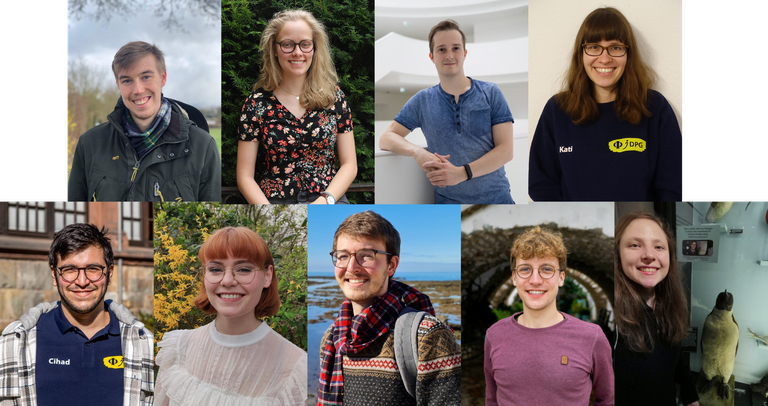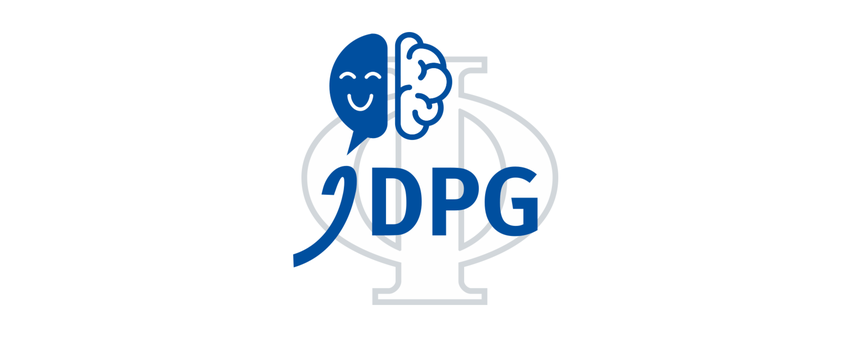Mental Health
Do you feel like you can't talk openly about mental health in your studies or PhD? Although many people in academia suffer from mental health problems at a higher than average rate compared to the rest of the population, the topic is taboo in our society [1]. To overcome this barrier, the topic of mental health needs to enter people's consciousness and the inhibition threshold for an open exchange needs to decrease. We want to improve the situation together with you. In the Mental Health work team, we are committed to creating awareness for the topic and promoting healthier togetherness; in academia AND beyond.
Next events
17.01.2023 at 19:30 Uhr – Meeting A-Team Mental Health at jDPG ZOOM Raum (every third Tuesday of a month)
Status Quo
Various studies show that undergraduate and graduate students demonstrate an increased disposition toward mental unhealth. For example, 15% of undergraduates show at least four symptoms of mental disposition based on the General Health Questionnaire. For doctoral students the situation is even more drastic with about 33% affected [2].
The consequences of mental unhealth should not be underestimated. People suffering from mental issues die on average 20 years earlier than the average person [3] and every fifth day of absence from work in Germany can be attributed to mental issues [4].
Vision
This situation is not sustainable and only together we can change something.
With you, we want to draw attention to the issue and bring about a sustainable awareness and thus in the long term better cooperation. Because we are not experts in this field, we cannot offer professional help and have to refer to specialists ([5-8]). Nevertheless, we can build up competences on the topic, for example to recognize symptoms of mental disharmony in ourselves and others. In addition, it is also about establishing other event formats in the jDPG and DPG, in which we invite external experts and discuss them together.
Our vision can be formulated in three goals that build on each other:
- In the long term, we want to create an academic environment in which mental stress can be freely discussed
- In the medium term, we want to place the topic within the DPG in order to achieve our long-term goal
- In the short term, we want to organize a pilot event to bring the topic of Mental Health into the jDPG
Let's tackle the topic together!
Current projects and ideas
Currently, the A-Team is working on the following projects:
- Combining mental health and engagement
- Establishing jDPG PeerCoaching
- Summarizing results of studies, articles and surveys on Mental Health
In addition, we would like to address workshops and seminars on the following topics in the future:
- Recognizing mental problems and how we should deal with them
- Mental health in study and research
- Promotion and work: time for you
If you have any other ideas or suggestions, feel free to write to us.
The more people we are, the better we can address the issue.
You want to join and make a difference?
If you share our vision, want to help achieve these goals or even have concrete ideas, then write to us! Together we will take the first steps towards a better tomorrow. In particular, we're excited to work with RGs to develop new regional group event formats.
Drop an email to Steven.
The jDPG Mental Health Team
Currently, the Mental Health Team consists of eight active members (from top left to bottom right): Sebastian Pape, Inga Woeste, Andreas Geilen, Katharina Adrian, Cihad Gözsüz, Johanna Putzer, Jonah Nitschke, Steven Becker und Anja Beck.
Because we all live in different parts of Europe we meet regularly online via ZOOM.
I would like to become part of the team, too! Then send us a mail.

Useful sources of information
- Zeit Interview: Wir sind zur Therapie
- Book (German): Wie man effektiv und nachhaltig Physik studiert
- Article: It’s time for a physicist to talk about mental health
- Article: Speaking up for Mental Health
References
[1] W. Chr. Goede, Mentale Gesundheit: Kein Tabu, sondern selbstverständlich!, 2021,https://www.maecenata.eu/wp-content/uploads/2021/09/MO_55-Goede.pdf
[2] K. Levecque et al.: Work organization and mental health problems in PhD students, 2017, https://www.sciencedirect.com/science/article/abs/pii/S0048733317300422
[3] WHO 2019 | https://www.euro.who.int/de/health-topics/noncommunicable-diseases/mental-health/data-and-resources/fact-sheet-mental-health-2019
[4] DAK 2021 | https://www.dak.de/dak/bundesthemen/1--halbjahr-2021-fehlzeiten-massiv-zurueckgegangen-2470334.html#/
[5] https://www.telefonseelsorge.de
[7] https://www.nummergegenkummer.de/
